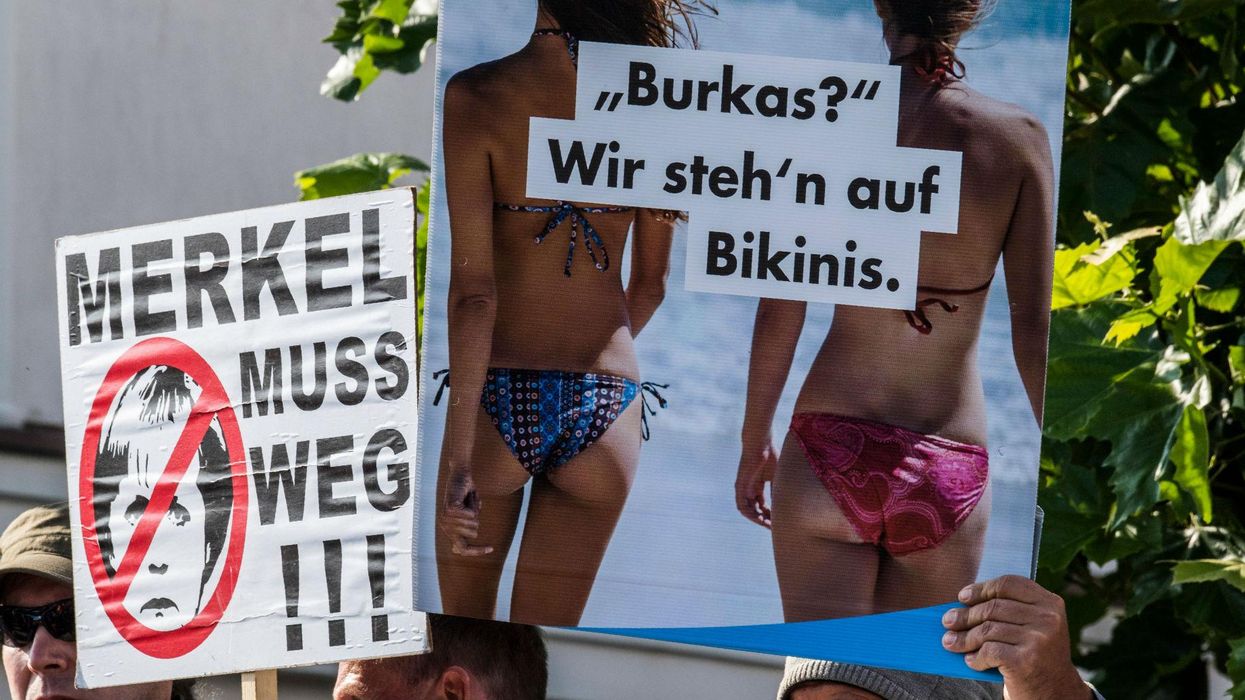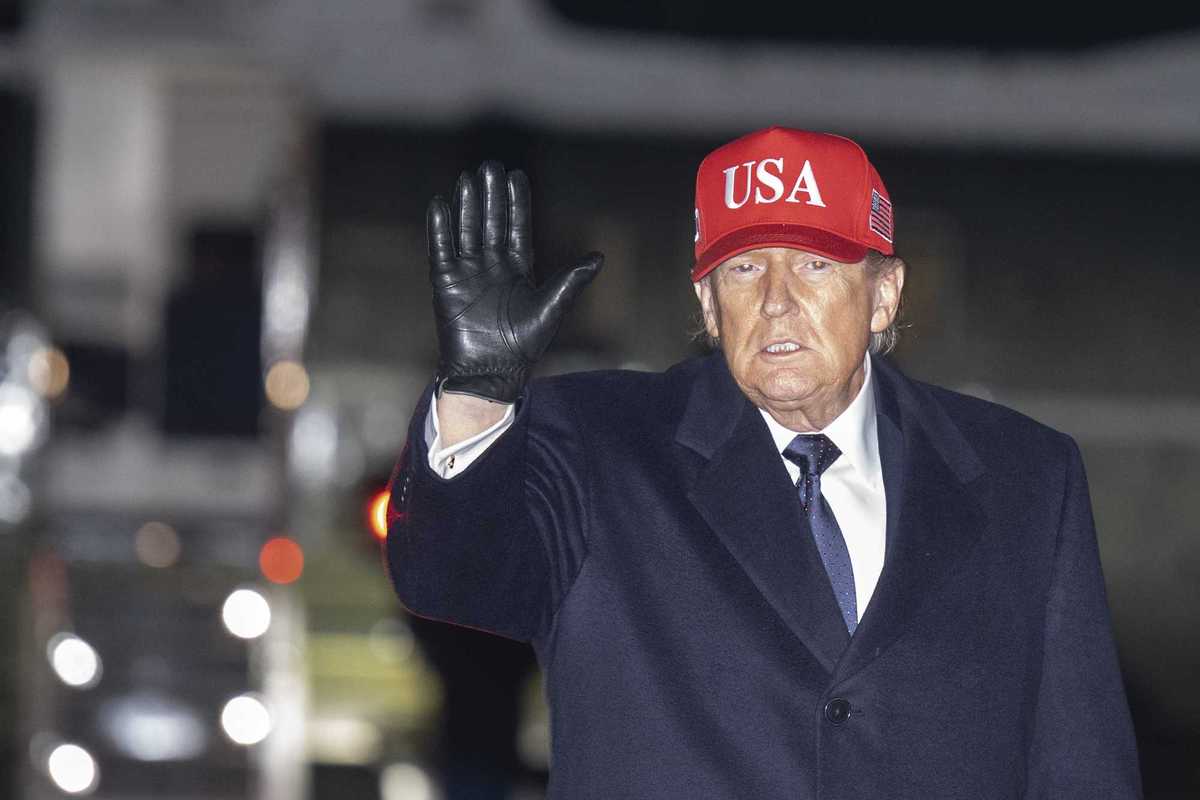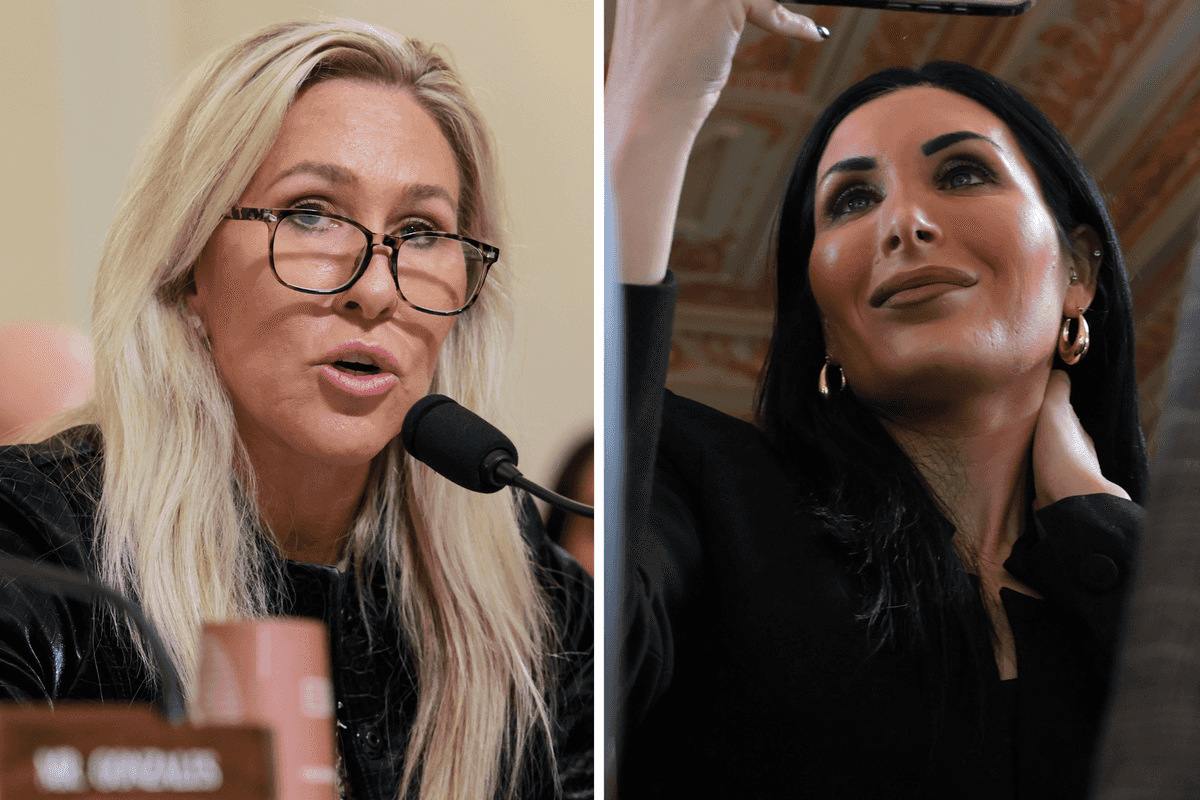News
Joe Vesey-Byrne
Sep 23, 2017

Picture:
JOHN MACDOUGALL/AFP/Getty Images
In yet another election, analysis of social media shows that the far-right has dominated newsfeeds and timelines.
On Sunday, German citizens go to the polls to elect a new parliament, who will in turn elect a Chancellor.
The most recent poll by INSA/YouGov suggest that incumbent party, the Christian Democrats (CDU) led by Angela Merkel will be returned as the largest party, followed by the Social Democrats (SPD).
The Alternative für Deutschland (AfD), Germany's far-right force also contesting the elections, scored 13 per cent in the same poll.
Political consultants Harris Media, who worked for Donald Trump, Ukip and Ted Cruz, has, according to reports by Der Spiegel, at least three executives working out of the Berlin headquarters of the AfD.
Founded in 2008 by Christian conservative Vincent Harris, the group is credited by many for creating the 'conservative internet'.
Multiple analyses of the digital strategy employed by the AfD show it is using tactics that previously bolstered the online presence of right-wing political movements.
One group examining the AfD on social media is the Computational Propaganda project at the Oxford Internet Institute (OII).
Set up in 2012, the OII's project on computational propaganda first looked at the 2012 ballot in Venezuela, and has since covered social media activity during five elections including the US and Brexit.
Dr Lisa-Marie Neudert, a communications expert, political scientist, and researcher on the project, told indy100 the AfD uses a 'digital first strategy', which has been professionalised.
Similarly, Neudert described tactics used by the AfD such as sharing Facebook videos as opposed to holding traditional press conferences, and creating provocative content designed to be shared.
In late August the AfD shared a post that went viral, of bloodied tire tracks.
The tire tracks were a reference to terrorist attacks in European cities in the last year.
The caption read 'The tracks left by the world chancellor in Europe'.
Significantly, Neudert reports that the AdD's followers are also extremely professional in their media strategy.
For instance, Neudert told indy100 that in their study the accounts sharing AfD were consistent in messaging, and use of the same select AfD slogans in Twitter bio pictures.
Message discipline is one of the reasons the far-right has been so successful on social media. A 2016 study of white supremacists on Twitter, found a similar adherence to message discipline and sophisticated marketing skills that made them more successful than accounts promoting other extreme political causes.
Coordinated hashtags, such as Merkel Muss Weg (essentially Merkel Must Go), add to the message discipline used by supporters, and also translate into more traditional forms of campaigning.
Newsfeed dominance
According to media monitors NewsWhip, the AfD Facebook page has the largest number of interactions per post.
NewsWhip reports 800,000 engagements on AfD Facebook page posts between 12 August and 13 September, averaging 5,000 per post.
Merkel's CDU also posted frequently, but had just 114,000 engagements in the same period, and an average of 1,000 interactions per post.
Neudert's team found that out of 1 million tweets they analysed - 30 per cent were related to the AfD, more than double their polling average in recent months.
This is similar to Ukip, and far-right non parliamentary groups such as Britain First, whose social media engagement figures outstrip their success at the ballot box.
In the OII's study of Twitter accounts during a 10 day period of September 2017, they found that tweets about the AfD made up a much higher proportion of Twitter traffic than their vote share would suggest.
The AfD however, are on course to win seats in the Bundestag for the first time, in part because of their successful online strategy, and the more proportional German electoral system.
Use of automated accounts and sharing 'junk news'
The fear of this dominance, is that it could be used to share 'fake news' and propaganda through automated accounts.
Ahead of elections in 2016, Mrs. Merkel warned that 'fake news' and automated accounts on social media 'should not be underestimated'.
Following her warning, all parties, except the AfD, pledged not to use automated accounts for the purpose of propagating their political message.
The AfD has subsequently distanced itself from a claim that it would 'consider' using automated accounts.
In April, Facebook announced measures to attempt to fight fake or automated accounts.
In Germany in particular, the phenomenon appears to be less wide spread. Neudert claims it is much smaller than the number used in the US elections, in part because European politicians demanded a crack down because of the supposed influence on the American result in 2016.
The OII, which also studied social media during the German presidential elections in February, found only 92 fake accounts out of 114 thousand accounts under observation.
Similarly, the study of the current elections did not find a high proportion of fake or automated accounts.
What Neudert's study terms 'Junk news' is a bigger concern.
What the most recent study from the OII, and their studies of other elections found was that junk news from automated accounts almost exclusively promotes the far-right or denigrates their opponents.
Neudert told indy100 that only during the French presidential elections did the OII observe significant amount of fake news being peddled by accounts supporting the left.
The report by the OII into the German presidential elections found that the ratio of professional to junk news shared by German Twitter users was four to one.
Writing on the current elections, and making international comparisons, the OII stated:
German social media users shared a lower percentage of junk news content than social media users who actively discussed the 2016 US presidential election in Michigan. They shared a roughly comparable amount of junk news as did UK voters during the 2017 UK General Election, but a higher percentage than voters in the 2017 French Presidential Elections
Yet, a fake news story spread in February attributing an untrue quote to a leading Germany politician trended for three days before being properly countermanded.
According to Neudert, Germany has some protections, in addition to those created by Facebook.
Chiefly this encompasses data protection, which in Germany prevents 'microtargeting' on the level that is currently possible in the United States elections.
Satire competes with propoganda
Interestingly, the analysis by Newswhip also found that posts criticising the AfD do almost as well as those promoting it.
One post by Der Postillion, mocking the AfD leader, was their most successful election related post in terms of engagement, rivalling the sort of viral success usually won by the AfD themselves.
The article jokes that an AfD politician has taken a 'Who Should You Vote For?' quiz, and the result he keeps getting is 'Nazi', even though it is not an option on the quiz.
The OII study put political humour in another category from junk news, but Neudert said they recognise that a user scrolling through their newsfeed could confuse satire for a genuine news story, or think it is blatant propaganda.
Well known spoofs such as The Onion and Der Postillion do not fall foul of this, but others might.
Die Partei, whose leader recently hijacked a series of far right private groups, setting them to public, has also gained more new Facebook fans than the AfD and CDU combined.
The group has also used AfD propaganda as a spring board. In August they responded to the AfD's posters promoting the birth of more Germans, with their own warning:
'Sleeping with Nazis is forbidden'.
Despite a strong AfD digital strategy and dominance of social media, a combination of popular satirical posts, and comedic activists fighting any attempt to peddle propaganda appears to be securing German elections from any fake news menace.
In particular, the alleged threat of Russian interference, that plagued the US and French presidential elections, appears to be minimal in this election.
While this may be reassuring, it deprives the moderate parties from blaming a 'fake news' campaign, in the event of any sort of electoral upset on Sunday.
Top 100
The Conversation (0)













